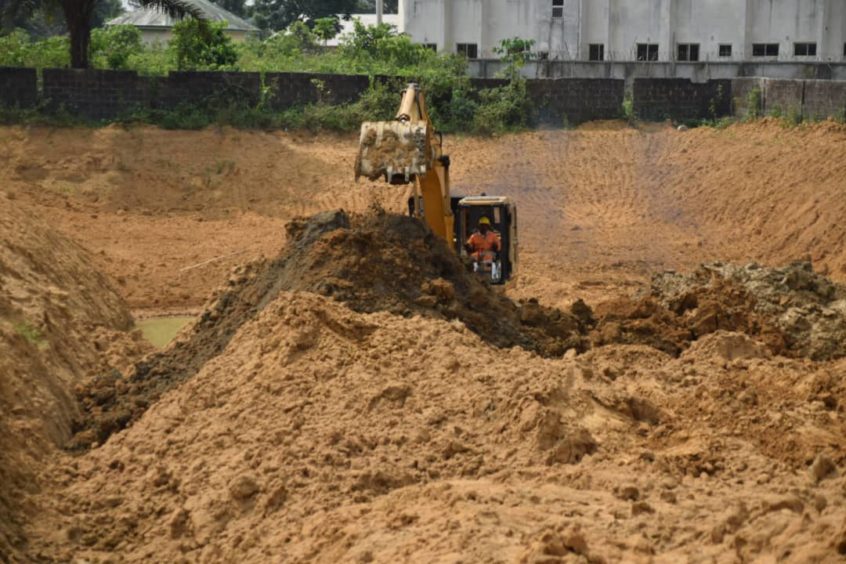
Shell is heading to the UK Supreme Court today for another hearing on oil leaks in the Niger Delta.
Leigh Day is representing two communities in Nigeria, Ogale and Bille. The case focuses on Shell, and its Nigerian subsidiary Shell Petroleum Development Co. (SPDC), with allegations of severe environmental pollution.
The Court of Appeal in February 2018 ruled that the English court was not the right place for such a hearing. However, it allowed for a final appeal to the Supreme Court.
Shell maintains that the parent company does not exercise control over the work, or spills, of its SPDC subsidiary.
“We share the same goal as all Shell-operated ventures globally, of operating safely without harm to people and protecting the local environment. Both Bille and Ogale are areas heavily impacted by crude oil theft, pipeline sabotage and illegal refining, which remain the main sources of pollution across the Niger Delta,” said a spokesperson from SPDC.
“Litigation in courts unfamiliar with the realities on the ground – and Nigerian law – does not address the issue of criminal interference in the operations of Nigerian companies. Nigeria has a well-developed justice system that is capable of dealing with these claims. We maintain the Court of Appeal in London rightly decided this case should not proceed in the English courts.”
The Anglo-Dutch company operates in the Niger Delta through a minority stake in a joint venture with state-owned Nigerian National Petroleum Corp. (NNPC).
Lawyers for the claimants have argued that Shell stepped in to take more direct control of SPDC because of various problems, including oil spills.
Former Shell employee Rebecca Sedgwick said Shell had taken a “centralised and controlled approach to SPDC”, with “all key HSSE decisions regarding SPDC [being] made by the Head of Upstream International”.
The written finding from the 2018 case disagreed with Sedgwick’s comments, though.
In the 2018 decision, Sir Geoffrey Vos noted the “particular problems” of SPDC. The unit was “particularly important from an economic perspective” for Shell, he said.
Foreign works
The International Commission of Jurists’ (ICJ) Carlos Lopez noted the importance of a similar case, against Vedanta Resources over activities by a subsidiary in Zambia.
“The Supreme Court found that … the parent company did have appear to have control over relevant policies and activities of the subsidiary and had thus a duty to respect and protect the rights of people in Zambia,” Lopez said.
“This case will not find yet whether Shell was responsible, or whether there is a link between the two companies. The discussion is merely whether the case against Shell should be heard in the courts of England and Wales. A win for the claimants at this stage would see the case go to a lower court for a hearing,” he continued.
Lopez said the Vedanta case had already begun to have an impact on how companies assess the work of their subsidiaries. “Companies must take steps to be more careful and hands on – they must have better internal policies and procedures in order to prevent problems.”
Leigh Day has previously managed to extract compensation following a legal battle against Shell. The super-major agreed in early 2015 to pay £55 million to the community of Bodo. This is in the Gokana local government area (LGA) in Rivers State.
Spills
Whatever the Supreme Court finds, an environmental catastrophe is unfolding in the Niger Delta.
Even in Ogoniland, where Shell has agreed to pay into a clean-up fund, progress remains painfully slow. A number of NGOs published a report last week, “No clean-up, no justice”, charting this failure.
The United Nations Environment Programme (UNEP) recommended $1 billion be invested in Ogoniland to tackle the problems in a 2011 report.
The Ogoni people are still waiting. “This is despite hundreds of millions of dollars being transferred to Hydrocarbon Pollution Restoration Project (HYPREP) by the companies and it spending some $30 million,” the report said.
HYPREP was not designed or structured to implement such a project, the report quoted UNEP as saying.
Ogale featured in the original UNEP report. The 24 inch Nkpoku to Bomu, and 36 inch Rumuekpe to Nkpoku lines run through the area. A report in 2017 said families were drinking water from wells contaminated with benzene.
Bille is in the Degema LGA, in Rivers State. The area has been damaged by spills from the Nembe Creek Trunkline (NCTL). The Bille section of the link was replaced in 2010 and the new section has been leaking, Leigh Day reported.
Spills have damaged 13,200 hectares of mangrove, the law company said. This is “the largest loss of mangrove habitat in the history of oil spills”.
Updated at 9:52 am on June 23 with comment from SPDC.
